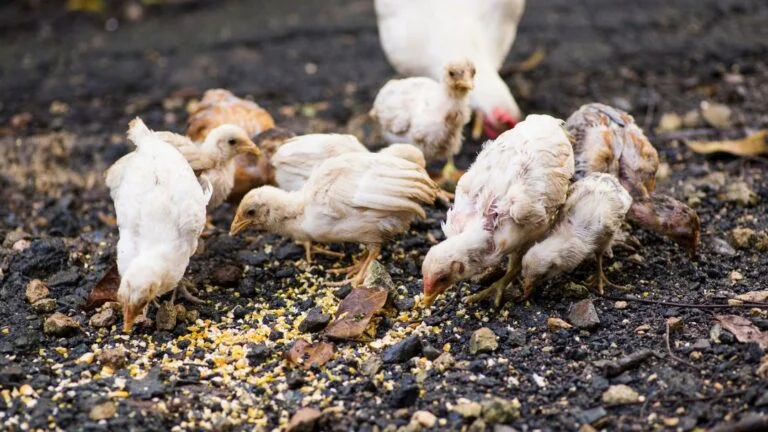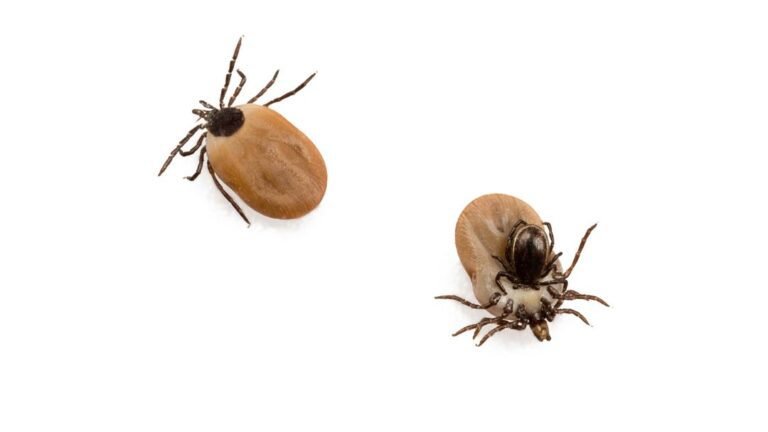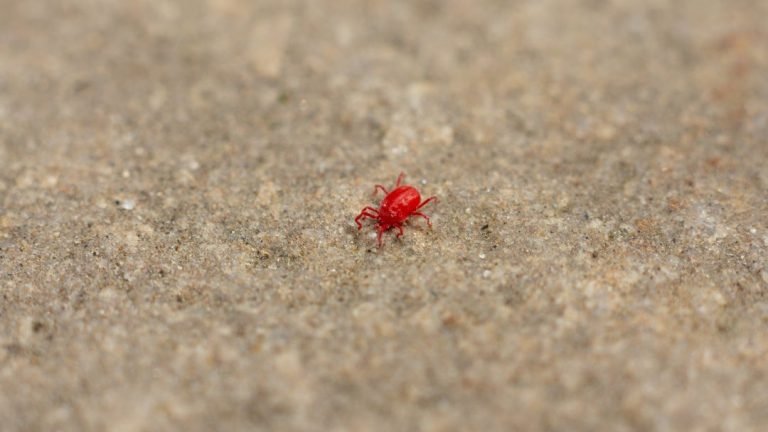Yes, chickens and ducks can live together peacefully in the same coop or shelter. Introducing chickens and ducks to a shared living environment can be a harmonious arrangement.
Both types of poultry have similar housing and feeding needs, and they tend to get along well. However, it is important to consider a few factors before housing them together. Understanding their unique behaviors, ensuring enough space, providing appropriate food and water sources, and monitoring for any signs of aggression or stress are vital for maintaining a happy and healthy flock.
With proper care and attention, chickens and ducks can thrive side by side, offering a diverse and delightful addition to your backyard farm.
Understanding The Natural Compatibility Of Chickens And Ducks
htmlChickens And Ducks: Natural Companions Or Rivals?
When it comes to keeping chickens and ducks together, one might wonder if they are natural companions or rivals. While chickens and ducks are both domesticated farm animals and have similarities, they also have some key differences that are worth exploring.
Exploring The Similarities And Differences Between Chickens And Ducks
Chickens and ducks share some similarities, such as being poultry birds, and they have a few common needs, like access to fresh water and suitable shelter. However, they also have distinct differences in terms of appearance, behavior, and even dietary requirements.
Chickens are known for their distinct feather patterns and are usually heavier than ducks. They have clawed feet and are skilled in scratching and foraging for insects and seeds. On the other hand, ducks have webbed feet that are adapted for swimming and their feathers are more water-resistant. They are also able to dive and dabble in water, unlike chickens.
Assessing The Behavior And Social Dynamics Of Chickens And Ducks
When considering mixing chickens and ducks, it’s important to assess their behavior and social dynamics. Chickens are generally more territorial and hierarchical in nature. They establish a pecking order within their flock, where dominant hens lead and assert their authority. Ducks, however, tend to be more social and less territorial, with less of a strict pecking order.
While chickens can be aggressive towards ducks and may become territorial over food or nesting spaces, it is possible to successfully integrate the two species by carefully introducing them, providing ample space for everyone to roam, and monitoring their interactions.
Examining The Natural Instincts And Needs Of Chickens And Ducks
To ensure the well-being of both chickens and ducks, it’s crucial to understand their natural instincts and needs. Chickens have a strong instinct to scratch and forage, so providing them with an outdoor area to explore and access to fresh vegetation and insects is essential. They also require proper shelter and protection from predators.
Ducks, on the other hand, need access to water for bathing and swimming. Having a pond or shallow water source in their living environment is important for their overall health and happiness. Ducks also require proper nutrition, including a balanced diet with appropriate nutrients for their growth and development.
| Chickens | Ducks |
|---|---|
| Feather patterns | Distinct and colorful |
| Foot characteristics | Clawed feet for scratching |
| Behavior | More territorial and hierarchical |
| Water traits | Not adapted for swimming |
- Chickens are heavier than ducks
- Chickens scratch and forage for insects and seeds
- Ducks have webbed feet and are adapted for swimming
- Ducks can dive and dabble in water
In conclusion, while chickens and ducks have their own characteristics and behaviors, with proper understanding, consideration, and accommodation of their needs, it is possible for these two species to coexist peacefully. By providing suitable environments and monitoring their interactions, chickens and ducks can become natural companions on your farm or backyard.
Factors To Consider For Successful Cohabitation
Factors to Consider for Successful Cohabitation with Chickens and DucksPromoting Peaceful Coexistence: Tips And Strategies
Introducing chickens and ducks gradually and safely:
If you’re considering housing chickens and ducks together, introducing them gradually and safely is key to promoting a harmonious coexistence. It can help reduce potential stress and conflicts among the flock. Here are a few steps to follow when introducing your chickens and ducks:
- Separate but visible enclosures: Initially, keep your chickens and ducks in separate but visible enclosures. This allows them to see and get used to each other without direct contact, mitigating any aggressive behavior.
- Supervised introductions: Once both chickens and ducks have familiarized themselves with one another, you can begin supervised introductions. This can be done by allowing them to free-range together in a controlled environment while keeping a close eye on their interactions.
- Monitoring for signs of aggression: While supervising interactions, observe both the chickens and ducks for any signs of aggression. If aggression occurs, be prepared to separate them immediately before any harm is done.
Understanding The Appropriate Flock Size And Composition:
When it comes to promoting peaceful coexistence between chickens and ducks, it’s important to consider the appropriate flock size and composition. Factors such as the size of your coop and the individual needs of each bird should be taken into account. Here are a few points to remember:
- Flock size: Avoid overcrowding the coop as it can lead to territorial disputes and aggression. Provide enough space for each bird to move around comfortably. As a general guideline, allow for at least 4-5 square feet of floor space per chicken and 6-8 square feet per duck.
- Mixing breeds: When mixing chicken and duck breeds, consider the size differences and temperaments. Similar-sized birds and docile breeds tend to have a better chance of coexisting peacefully.
- Brooding together: If you plan to brood chicks and ducklings together, ensure they have adequate space and temperature requirements. Provide separate feeders and waterers to prevent competition and potential aggression.
Managing Potential Challenges And Conflicts Between Chickens And Ducks:
Living together, chickens and ducks may encounter some challenges and conflicts. However, with proper management, these can be minimized. Here are strategies to help you overcome potential issues:
- Separate feeding areas: Make sure to provide separate feeding areas for both chickens and ducks. This prevents competition for food and reduces the likelihood of aggression.
- Multiple water sources: Ducks have specific water needs, with a desire for deeper water than chickens. To avoid disputes over water access, provide multiple water sources at different depths to accommodate both species.
- Appropriate nest boxes: Ensure there are adequate nest boxes available for egg-laying. Ducks prefer ground-level nesting areas, while chickens typically prefer elevated ones. Providing suitable options for both species helps prevent conflicts over nesting spaces.
Establishing A Harmonious Routine And Social Hierarchy:
To maintain peace and minimize conflicts within a mixed flock of chickens and ducks, it’s important to establish a harmonious routine and social hierarchy. Here are some tips to help you achieve this:
- Consistent feeding schedule: Follow a consistent feeding schedule for both chickens and ducks. Regular feeding times can help prevent food-related disputes.
- Observing behavior: Pay attention to the flock’s behavior and dynamics. Allow them to establish their own social hierarchy, which may involve pecking order and dominance between individuals.
- Providing ample resources: Ensure ample resources such as food, water, nesting areas, and perches are available to avoid any potential competition among the birds.
Health And Hygiene Considerations For Mixed Flocks
When it comes to keeping chickens and ducks together, one must consider the health and hygiene aspects of cohabitation. Recognizing the risk of diseases and infections, implementing preventive measures, addressing specific health concerns, and maintaining proper hygiene practices are all crucial for the well-being of both species.
Recognizing The Risk Of Diseases And Infections In Cohabitating Chickens And Ducks
When chickens and ducks live together, there is an increased risk of diseases and infections spreading between the two species. Chickens and ducks have different immune systems and susceptibility to various illnesses, making it imperative to be aware of the potential risks. Some common diseases that can affect both chickens and ducks include:
- Fowl cholera: A bacterial infection that affects both chickens and ducks, leading to high mortality rates if left untreated.
- Avian influenza: A highly contagious viral respiratory disease that can be transmitted between chickens, ducks, and other birds.
- Mycoplasma: A bacterial infection that can cause respiratory problems in both species, leading to decreased egg production and overall health issues.
Recognizing the signs and symptoms of these diseases is crucial for early detection and prompt treatment.
Implementing Preventive Measures To Ensure The Well-being Of Both Species
To minimize the risk of diseases and infections, implementing preventive measures is essential. Here are some proactive steps to consider:
- Quarantine new birds: When introducing new chickens or ducks to an existing flock, it is crucial to quarantine them for a period of time to prevent the potential spread of diseases.
- Vaccination: Consult with a veterinarian to determine the appropriate vaccines for both chickens and ducks, considering their specific needs and potential disease risks.
- Regular health checks: Monitor the overall health of the mixed flock, including observing behavior, appetite, feather condition, and egg production. Any changes or abnormalities should be addressed promptly.
Addressing Specific Health Concerns And Common Ailments For Chickens And Ducks
Chickens and ducks may have different health concerns and common ailments. Understanding these concerns will enable proactive care. Here are some health issues that both species can face:
| Chickens | Ducks |
|---|---|
| Coccidiosis | Botulism |
| Pasteurellosis | Vitamin deficiencies |
| Mites and lice infestations | Aspergillosis |
By being aware of these specific health concerns, appropriate measures can be taken to prevent and treat these ailments.
Maintaining Proper Hygiene Practices In Shared Living Spaces
Shared living spaces require careful attention to hygiene to reduce the risk of diseases and infections. Here are some hygiene practices to follow:
- Regular cleaning: Clean the coop, nesting boxes, and water containers regularly to remove any potential sources of bacteria and parasites.
- Separate feeding areas: Provide separate feeding areas for chickens and ducks to prevent cross-contamination.
- Pest control: Implement pest control measures to prevent the infestation of mites, lice, rodents, and other pests that can transmit diseases.
- Proper waste management: Dispose of waste properly, ensuring that feces and soiled bedding are removed from the living space promptly.
By adhering to these hygiene practices, the risk of diseases and infections among cohabitating chickens and ducks can be significantly reduced.
Benefits And Rewards Of Keeping Chickens And Ducks Together
Keeping chickens and ducks together in a mixed flock can bring numerous benefits and rewards. Not only do these feathered friends provide great companionship and entertainment, but they also offer several advantages in terms of garden care, pest control, economic benefits, and self-sufficiency. Let’s take a closer look at why combining chickens and ducks in one flock can be a smart and rewarding decision.
Exploring The Advantages Of Mixed Flocks In Terms Of Pest Control And Garden Benefits
One of the key advantages of raising chickens and ducks together is the exceptional pest control they offer. Chickens have a natural instinct for hunting down insects, while ducks excel at devouring slugs and snails that can wreak havoc on your garden. By combining the foraging abilities of both species, mixed flocks help keep gardens healthy and pest-free.
Additionally, the droppings of chickens and ducks are rich in nutrients that act as natural fertilizers. As the birds roam freely around the yard, they naturally distribute their droppings, enriching the soil and promoting lush plant growth. This organic fertilizer is a cost-effective solution that benefits both your pocket and the environment.
Enjoying The Entertaining And Complementary Attributes Of Chickens And Ducks
Another advantage of keeping chickens and ducks together is the sheer entertainment they provide. Chickens are known for their animated personalities, while ducks are charming with their curious waddles and endearing quacks. The contrasting behaviors and interactions between these two species can captivate both young and old, creating a delightful and amusing backyard experience.
Furthermore, chickens and ducks have complementary attributes that enhance their coexistence. Chickens are excellent foragers and scratch the ground to uncover insects, while ducks enjoy dabbling in water and can help keep their feathered companions clean by splashing water around. This symbiotic relationship encourages a healthier and happier flock.
Considering The Potential Economic And Self-sufficiency Benefits Of Raising Mixed Flocks
Combining chickens and ducks in a mixed flock can also have significant economic advantages. Not only do these birds provide a sustainable source of fresh eggs, but they can also produce fertile eggs for hatching. This opens up opportunities for self-sufficiency, allowing you to hatch your own chicks and ducklings, saving money in the long run.
Moreover, integrating chickens and ducks can contribute to a more efficient use of resources. While chickens are excellent at converting kitchen scraps into eggs, ducks can make a substantial contribution by converting excess aquatic vegetation, such as pond weeds, into nutritious eggs. This efficient utilization of available resources promotes sustainability and reduces waste.
Celebrating The Joys And Unique Experiences Of Raising Chickens And Ducks Together
Raising chickens and ducks together offers a unique and fulfilling experience. The joy of observing their social dynamics, from the protective nature of chickens towards ducklings to the amusing antics that unfold in their coop, is immeasurable. The sight of chickens roaming alongside ducks, sharing breakfast or basking in the sun, creates a picturesque scene that highlights the beauty of nature’s diversity.
Furthermore, the combination of different breeds and species introduces variety to your flock, presenting a colorful blend of feathers, shapes, and sizes. This diversity adds an aesthetic appeal that only a mixed flock can provide, making your backyard a vibrant and lively haven.
Conclusion
Chickens and ducks can live together peacefully as long as certain factors are considered, such as providing adequate space, providing separate areas for each species, and ensuring their nutritional needs are met. It is important to observe their behavior and make adjustments accordingly to create a harmonious environment for both chickens and ducks.
By following these guidelines, you can successfully create a mixed flock that coexists in harmony. Happy farming!




